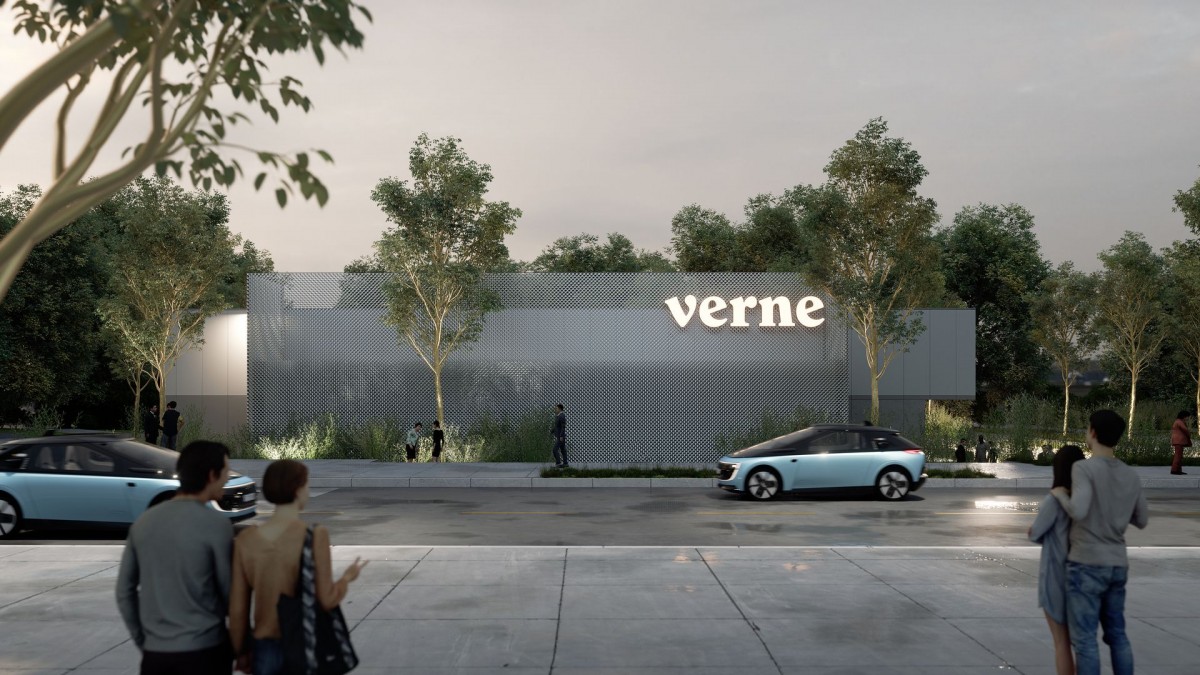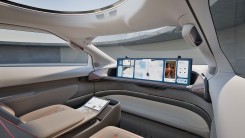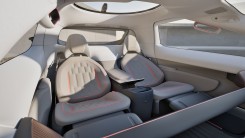Electric supercar maker Rimac unveils Verne robotaxi
The Croatian company Rimac known for its record-breaking electric hypercar, the Nevera, is venturing into the world of autonomous vehicles with the launch of its first robotaxi vehicle and service, Verne. Named the after the renowned science fiction author Jules Verne, the service is set to debut in Zagreb, Croatia, in 2026.

At first, this may seem unexpected for a company that has primarily focused on high-performance electric vehicles. However, Rimac has been quietly developing autonomous technology since 2017 and received substantial funding from the EU to develop robotaxis as part of a recovery plan for Croatia.
Verne, previously known as Project 3 Mobility, will be led by CEO Marko Pejkovic and chief designer Adriano Mudri, the creative mind behind the Nevera. The company chose to honor Jules Verne for his visionary tales of travel and exploration.

The Verne robotaxi will be a fully electric, Level 4 autonomous vehicle, meaning it will not have traditional controls like a steering wheel or pedals. It will also lack windshield wipers and side-view mirrors to improve aerodynamics. The vehicle's design is a departure from the typical boxy robotaxis, featuring a sleek, two-door hatchback style with sliding doors for easy entry.
One of the most striking features of the Verne robotaxi is its interior. With no steering wheel or pedals, the cabin boasts a spacious design with a massive 43-inch display dominating the dashboard. This screen will provide navigation information, media controls, and other features for passengers. You can also expect the screen to display advertising once the service kicks off.
While many robotaxi companies opt for larger vehicles, Verne has chosen a two-seater design. This decision is based on data indicating that most rideshare trips involve only one or two passengers. The smaller size allows for a more luxurious interior while still meeting the needs of most customers.
Verne plans to build centrally located vehicle depots called "Motherships" in the cities it operates in, providing cleaning, charging, and maintenance services. The company also intends to construct a factory in Croatia to manufacture the robotaxis.

Following the Zagreb launch, Verne aims to expand its service to other European cities, starting with the UK and Germany and eventually reaching the Middle East. The company has already secured agreements with 11 cities and is in talks with over 30 cities worldwide.
Verne's ambitious goal is to become the first major robotaxi operator outside of the US and China. The company envisions its service as a complement to public transportation rather than a competitor, ultimately aiming to reduce the need for multiple cars in households.








Facebook
Twitter
Instagram
RSS
Settings
Log in I forgot my password Sign up